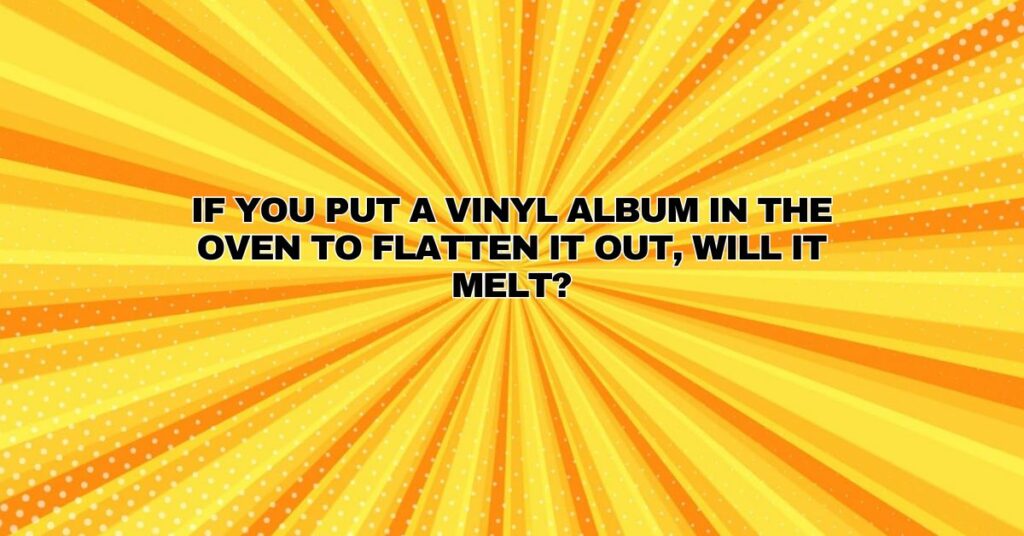Vinyl records have made a remarkable resurgence in recent years, with collectors and enthusiasts keen on preserving their unique analog sound. While some collectors might encounter warped or slightly misshaped records in their collections, the idea of putting a vinyl album in the oven to flatten it out might seem like a tempting solution. However, it’s essential to address this notion with caution. In this article, we’ll explore the process and potential risks of using an oven to flatten a vinyl record and suggest alternative methods for record restoration and maintenance.
The Warping Dilemma
Warping is a common issue with vinyl records. Records can warp due to exposure to heat, improper storage, or even manufacturing defects. Warped records can result in distortion during playback, affecting the sound quality and listening experience. Given the value and sentimental attachment many collectors have to their records, the desire to repair a warped record is understandable.
The Oven Method: Myths and Risks
Some individuals have attempted to correct the warp by placing the vinyl record in an oven. The idea is to apply heat to the warped record, allowing it to soften and then gradually return to its original flat state as it cools down. However, this method carries several significant risks and is generally not recommended:
- Melting Point: Vinyl records are made of polyvinyl chloride (PVC), which has a relatively low melting point. The average oven temperature, even at its lowest setting, can exceed this melting point, causing irreversible damage to the record. Vinyl records can start to soften and warp further, rendering them unplayable.
- Uneven Heating: Even if you try to use a low-temperature setting, ovens do not heat evenly across their interior. This means that different parts of the record can experience varying levels of heat, causing uneven warping or damage.
- Toxic Fumes: When vinyl records are exposed to high temperatures, they can release toxic fumes that are harmful to both the environment and your health. Inhaling these fumes can lead to respiratory issues, making the oven method dangerous.
- No Guarantees: Even if you manage to apply heat without causing immediate damage, there is no guarantee that the record will return to its original state. It may simply become further distorted or end up with a new set of issues.
- Loss of Value: Attempting the oven method or other unprofessional repairs can significantly reduce the value of a record, particularly for collectors. The process can leave visible signs of damage or alterations that are hard to conceal.
Safer Alternatives for Record Restoration
Instead of resorting to risky methods like the oven technique, there are safer alternatives for flattening warped records:
- Record Weight: Some collectors use record weights specifically designed for flattening records. These weights exert even pressure on the vinyl, helping to reduce warping.
- Record Cleaning Machines: Investing in a record cleaning machine can help improve the condition of your records. While these machines are primarily for cleaning, they can help reduce minor warping in the process.
- Professional Restoration Services: For valuable or severely warped records, professional record restoration services can provide the expertise needed to restore the vinyl without causing further harm. These experts use specialized equipment and techniques to carefully flatten records.
Conclusion
Attempting to flatten a vinyl record in the oven is a risky endeavor that can cause irreversible damage to the record and pose health risks. Instead of taking this gamble, it is advisable to explore safer alternatives for record restoration. Prioritizing proper storage, avoiding extreme temperature fluctuations, and handling records with care can also go a long way in preventing warping in the first place. The value and enjoyment you derive from your vinyl record collection are worth the effort and care that preserving them requires.


